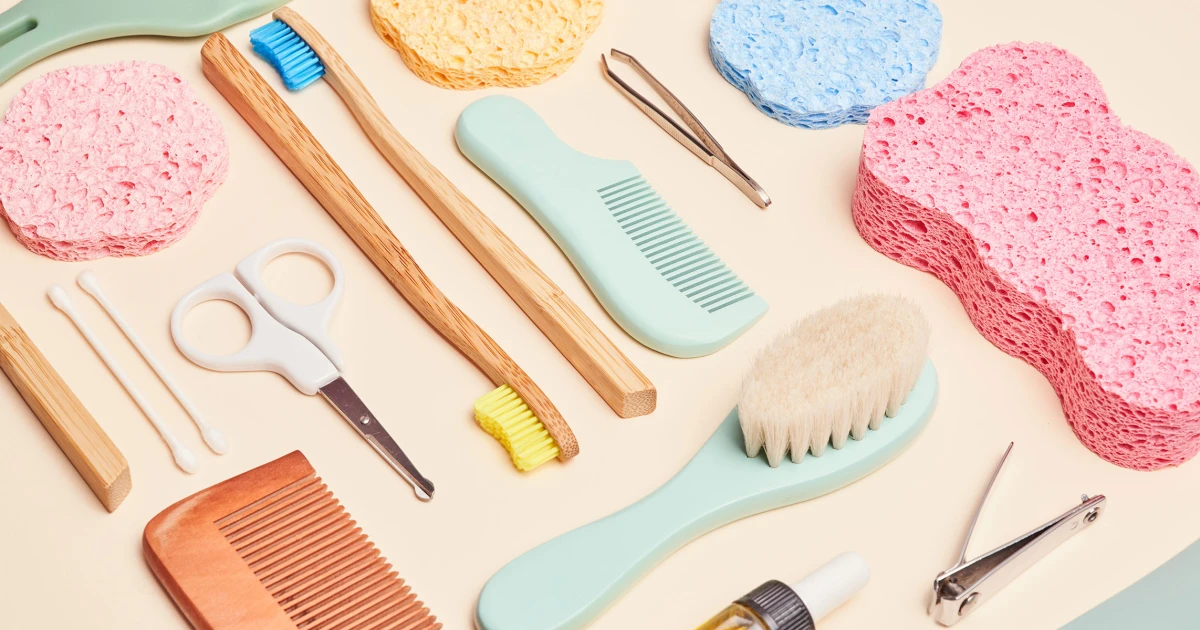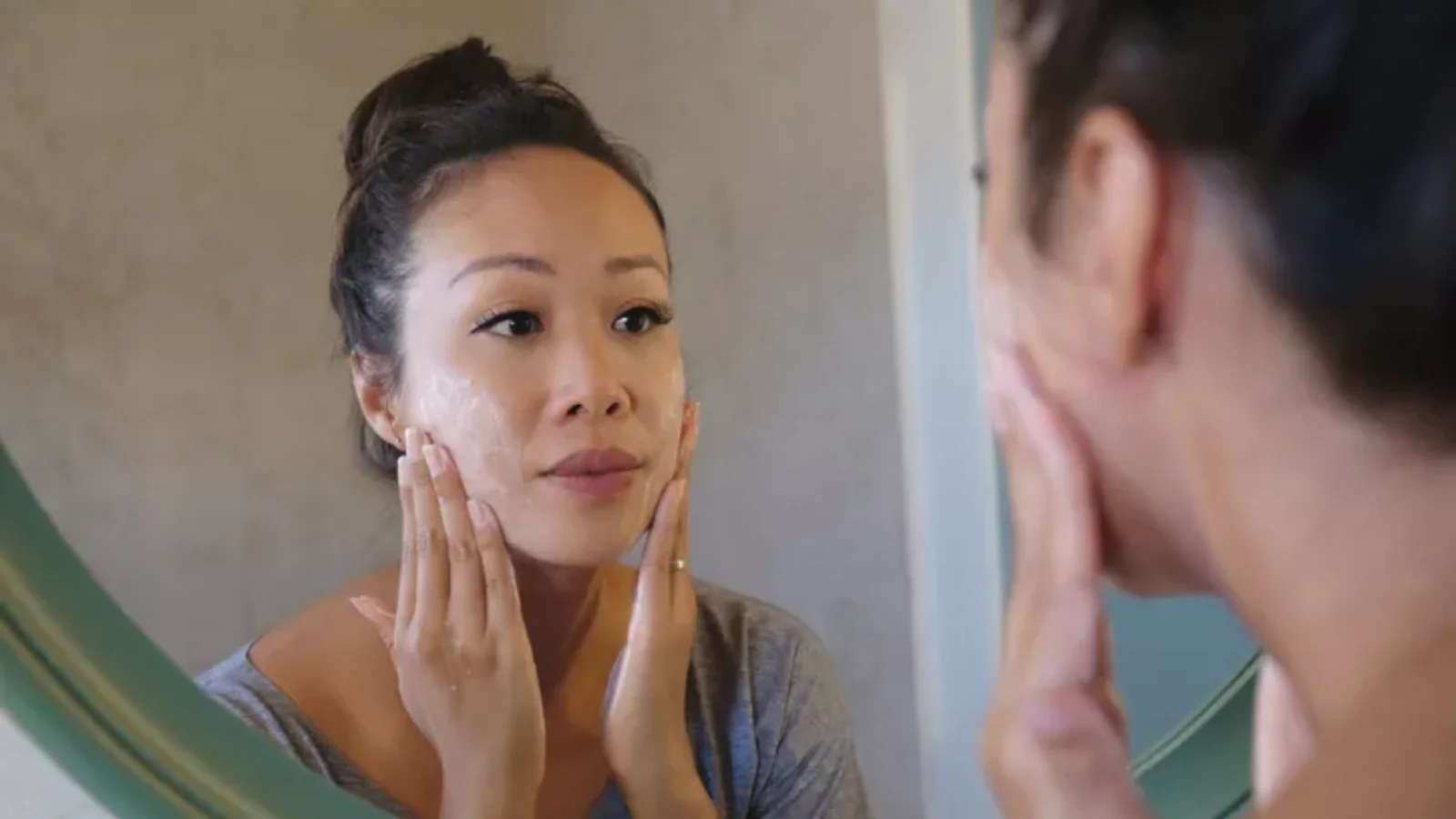
You’ve probably heard that “sharing is caring,” but some things are better to keep to yourself. We’re not talking about your deepest, darkest secrets, but rather, physical items that can harbor disease-causing germs.
Technically, any shared item can spread pathogens from one person to another. In microbiology, these are known as fomites. Fomites are inanimate objects that can become contaminated with infectious agents and transmit them to a new host.
“We get exposed to a lot of pathogens — viral, bacterial, and fungal — from fomites,” Dr. Bernard Camins, medical director for infection prevention at the Mount Sinai Health System, tells TODAY.com.
Common fomites we encounter in daily life include doorknobs, light switches and sink handles. These are almost impossible to avoid, which is why hand hygiene is important.
However, there are certain personal care and hygiene items that really don’t need to be shared. “That’s why they’re called ‘personal’ items,” says Camins. But it may be tempting to swap these with partners, family or friends — especially if you live together.
“When it comes to personal items, the issue is that many of them act as vehicles for bacteria, viruses and fungi. Sharing creates a direct route for these pathogens to bypass our natural cutaneous (skin) and mucosal barriers,” Dr. Adam Friedman, chair of dermatology at the George Washington School of Medicine, tells TODAY.com.
“Sharing personal care items may seem friendly and harmless, but many of these objects are essentially microbial Ubers delivering (pathogens) directly to new hosts,” says Friedman.
Here are 11 germy items that you should never share, according to doctors:
Lip Balm
The next time someone asks to borrow lip balm, think twice.
Lip balm can harbor bacteria and viruses from our lips, mouths and saliva, Dr. Jack Levy, dermatologist at Weill Cornell Medicine, tells TODAY.com. The way it’s applied means these spread directly into another person’s mouth.
Sharing lip balm can transmit bacterial skin infections or respiratory viruses like the common cold or influenza.
“There is a risk for herpes simplex virus transmission (cold sores), even from someone who has no symptoms,” says Friedman. People who have HSV-1 can shed the virus asymptomatically, and may not have signs of a cold sore when they’re contagious.
“Sharing lip balm is just a very risky thing to do,” says Levy.
Razors
“Razors I especially don’t recommend people share with others,” says Camins. Razors involve using a sharp blade against your skin, which presents many opportunities for transmission.
“It’s easy to nick the skin, and contaminated razors have been linked to bacterial skin infections, commonly with Staph aureus (including MRSA) or Streptococcus pyogenes,” says Friendman.
People can carry these asymptotically. “Razors can transmit bacteria that live comfortably on one person’s skin, but won’t do well on another person’s skin,” says Levy.
Even if there’s no visible cut, razors can cause microscopic tears in the skin allowing germs to enter. Sharing razors can lead to infected hair follicles, boils or even warts caused by human papilloma virus (HPV), says Levy.
Rarely, “sharing razors can transmit blood-borne viruses like hepatitis B and C,” Friedman adds.
Deodorant
Forgetting to wear deodorant is the pits, but experts warn against sharing this germy item — unless it’s the spray-on kind.
“Roll-on or stick deodorant is used directly on the armpit, where there’s a high growth of bacteria,” says Levy. The deodorant can harbor these bacteria, as well as fungi and yeast.
When deodorant is shared, these can spread directly to another person’s armpit — a moist, warm environment where these microorganisms thrive, Levy adds. This can transmit bacterial infections like Staph aureus or fungal infections like ringworm.
Nail Clippers
Nail clippers are another personal item you should avoid sharing.
It may not seem like a big deal to share nail clippers with a partner or family member, but these can harbor nail fungus or bacteria from one person that can lead to infection in another.
“Small cuts around the nails can allow fungi and bacteria to spread, leading to onychomycosis (fungus) or bacterial infections like paronychia,” says Friedman.
Unless you’re disinfecting or sterilizing the nail clippers before sharing them, it’s best to keep these nail tools to yourself.
Eye Makeup
Mascara, eyeliner, eye shadow, brushes — whatever the eye makeup product, keep it to yourself, the experts warn.
“Behaviors that might not seem like that big deal, such as sharing makeup with a friend or family member, can cause germ spread,” Dr. Usiwoma Abugo, clinical spokesperson for the American Academy of Ophthalmology, tells TODAY.com.
“Anything that goes in or near the eye … can mean developing painful (and in the worst cases, vision-threatening) eye infections,” Abugo adds.
These include styes, pink eye or conjunctivitis, as well as herpetic keratitis, which is caused by HSV, says Friedman.
Never share false lashes either, Dr. Natasha Herz, ophthalmologist and AAO spokesperson, tells TODAY.com. “This can expose you to harmful bacteria, dirt or dried lash glue that you don’t want in your eye,” Herz says.
While not necessarily makeup, Levy also recommends against sharing eye drops. These can become contaminated with bacteria and viruses from our eyes or hands, and sharing them can increase the risk of infection.
Hairbrushes and Combs
While hairbrushes and combs may seem like harmless items to share with family members or friends, the experts warm that these can be teeming with germs.
Brushes can pick up dead skin, dandruff, bacteria and other microorganisms from our scalp, which can accumulate and grow over time, especially if brushes are moist.
“Hairbrushes and combs can spread head lice and fungal scalp infections,” says Friedman. In rare cases, hairbrushes can even transmit scabies.
Loofahs and Washcloths
If your household uses a communal loofah or washcloth, it may be time to get a few extras for the shower.
Washcloths and loofahs are breeding grounds for germs, says Friedman. After using them to scrub our entire body, they often stay wet — in a warm, humid bathroom, this creates the perfect environment for bacteria and fungi to grow, Levy notes.
“A small count of bacteria that would normally be scrubbed off the skin, left on a moist washcloth (or loofah), will replicate … and with infections, it’s about the load of bacteria,” says Levy.
Sharing washcloths and loofahs can facilitate the spread of infections like staph, folliculitis or jock itch (a fungus).
Bath Towels
In a similar vein, the experts recommend against sharing bath towels used to dry the body (without washing them first).
“We share hand towels, because you’ve technically washed your hands before using (them), but bath towels, you definitely should have your own and not share,” says Camins.
Bath towels often harbor dead skin, bacteria, fungi and viruses, which can grow rapidly on damp fibers, especially when towels aren’t dried properly.
Sharing towels can spread infections, such as staph, tinea pedis (athlete’s foot), ringworm or impetigo, Friedman warns. Even E. coli from fecal matter can spread via towels.
Always hang-dry bath towels in a well-ventilated area to avoid mold growth, says Levy. Before sharing towels, wash them in hot water and dry on high heat.
Skincare in Jars
“We really like jars of lotions or emollients in dermatology because they tend to be thicker (and) moisturizing,” says Levy. The downside is that these are easily contaminated by dirty fingers digging into them.
Chances are, you’ve already introduced microorganisms into your jar of skincare with your own hands, so it’s best to avoid letting other people reach in and add more germs, says Levy.
Sharing skincare in jars can cause bacteria to accumulate, and this may cause skin infections or acne.
Always wash and dry your hands before dipping them into skincare in jars — even if you aren’t sharing it — and if you really want to share, use a fresh cotton swab.
Toothbrushes
“You should never, ever share toothbrushes,” says Camins.
Toothbrushes may be used to clean our mouths, but they can accumulate plenty of bacteria and other germs. “Toothbrushes are known to transfer bacteria linked to gum disease and even blood-borne viruses in some cases,” Friedman adds.
Using another person’s toothbrush can also facilitate the spread of viruses like the common cold or flu. “This could be a particular concern if you have a condition that leaves your immune system compromised,” according to the American Dental Association.
Earbuds
Often overlooked, wireless earbuds or in-ear headphones are another item you should keep to yourself, the experts say.
Aside from transferring earwax and gunk that accumulates on the earbuds, sharing these can also spread bacteria and yeast from the ear canal, says Friedman.
These include staph and pseudomonas, says Levy, which can lead to a painful outer ear infection.
Earbuds that have a soft, rubber tip are especially susceptible to germ growth. “This creates a very occlusive, moist environment which is a breeding ground for bacteria,” says Levy.
It’s important to regularly clean earbuds to remove wax and dirt, and sanitize them using alcohol, says Levy.
The Bottom Line
A good rule of thumb? If the item touches your skin, mouth or mucous membranes — or goes inside an orifice — keep it to yourself, says Friedman.



